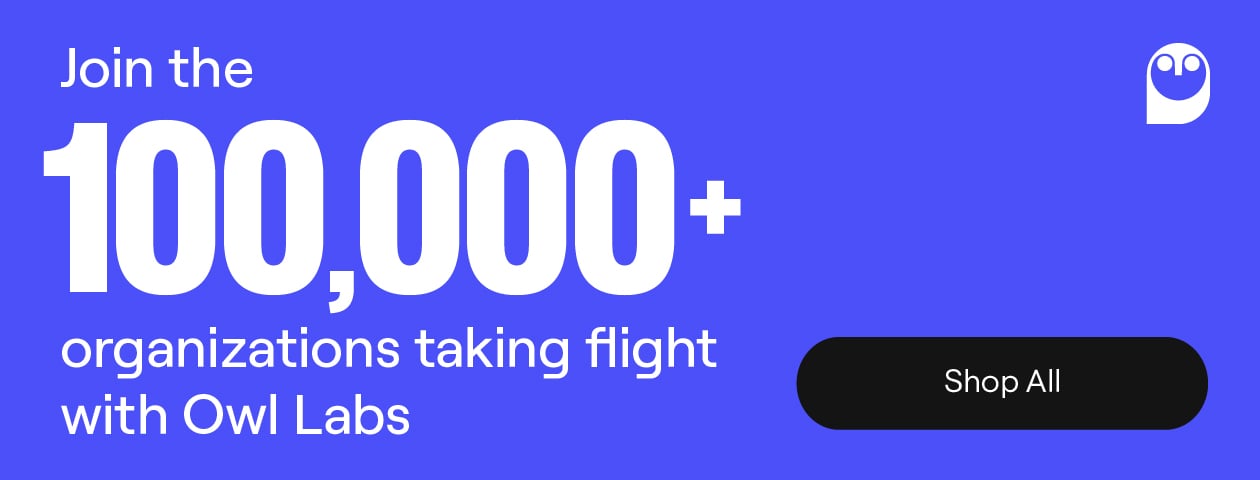Every teacher wants to engage with their students well, which can be no easy feat in a hybrid classroom. Hybrid learning is any combination of remote and in-person learning. It’s a format that has grown in popularity in recent years, meaning more teachers are navigating a new style of instruction. Hybrid learning can include a mix of remote and in-person learners or elements of blended learning, like scheduling some sessions fully remotely or asynchronously and others in-person. Hybrid learning can be a huge asset to differentiate instruction and let students learn at their own pace. Still, teachers need to be intentional about how they execute a hybrid format to create engaging learning moments for young learners.
Embrace the best tech setup
To make hybrid work, having tools that let everyone see each other and participate is essential. Choosing hybrid classroom technology that offers high-quality audio and video in a format that is easy to use is critical so all learners can follow along with minimal technical difficulties. The best camera for hybrid classroom setups should capture the entire room. An all-in-one video conferencing device like the Meeting Owl 4+ can be paired with another Meeting Owl or the Whiteboard Owl, customizing the setup to the room.
Whichever device you choose, make sure it is compatible with your school’s video conferencing platform. Depending on the classroom needs, teachers might choose to use a flexible center-of-the-room device like the Meeting Owl that has a quality 360º camera and video streaming capabilities that’s easy to set up and put away as needed. Or, if more of the focus of a lesson is on content on the boards, front-of-room visuals using a mounted device like the Owl Bar or Whiteboard Owl might be a better fit.
Clear rules rule
Clear classroom rules create a productive learning environment, especially for young learners, especially when it comes to everyday setup for hybrid days. If possible, have enough devices in your classroom so that in-person students can join the online classroom and see their remote classmates. Ground rules about participation and respect when using personal devices or a video conferencing camera will keep hybrid sessions running more smoothly.
Remind remote learners how to effectively use their tools: students should keep their cameras on, mute themselves when not speaking, raise their hands, both in the physical and online classroom. No students should have other devices out or other tabs open during class unless the teacher instructs them to. Making the ground rules a collaborative list at the beginning of the school year can help students feel ownership over expectations.
Design class with moments of connection
Utilizing Zoom breakout rooms for small group discussion, pairing remote students up with in-person buddies to break down the barrier between them and make class more engaging. Design class with moments of (fun) mandatory participation, too: using a quick poll can gauge student understanding. Tools like Slido for polls or Kahoot, which gamifies quizzes, are engaging for learners in all modalities, for both in-person and remote learning. An “exit ticket” question at the end of class can help educators check lesson comprehension in real time.
Giving all learners opportunities to connect with each other can also build rapport and engagement among the class. Including an icebreaker question at the beginning of class is a quick and easy addition that won’t disrupt the planned lesson.
Communicate often
Make sure students who are joining remotely have access to the most up-to-date information about class, including the right link to join. If you have younger learners in your classroom, ensure they have a parent or guardian who can help them access class from home. The ability to record class sessions to be able to review later is also an benefit of hybrid learning, and having a repository for students to refer to is a great resource if a student has to miss a class. If your classroom has an online component like a Google Classroom or Canvas page, make sure to keep the page up-to-date.
Provide students and their parents with a clear schedule of in-person and remote classes if you switch between modalities, and that there is an expectation that students will let the instructor know ahead of time if they will be remote or in-person for a class so that the teacher can plan accordingly.
You can do it!
With thought put in ahead of time to identify ways to bring in-person and remote learners together, choose the right remote learning tools, and keep all learners participating and feeling connected, educators can create an effective, engaging hybrid learning environment for all age groups. Educators can access more advice for using the Meeting Owl effectively in our Owl Labs for Education guide.
%20(1).png)
Better meetings start here
From huddle rooms to boardrooms and everything in between, we’ve got you covered with solutions that take teamwork to the next level.
Shop Solutions
